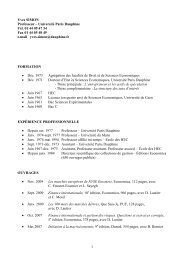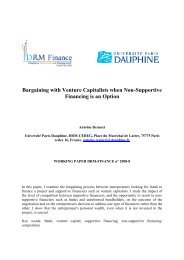Corporate governance and earnings management ... - CEREG
Corporate governance and earnings management ... - CEREG
Corporate governance and earnings management ... - CEREG
Create successful ePaper yourself
Turn your PDF publications into a flip-book with our unique Google optimized e-Paper software.
conventional wisdom: bankruptcy (Wilson, 1995, p. 58). At that time power (to offer life or<br />
death in case of failure) was in the h<strong>and</strong>s of rich <strong>and</strong> influent creditors, i.e. gentlemen,<br />
widows, merchants supplying country banks. As far as failures were frequent (Wilson, 1995,<br />
p. 56) these people imposed overall a cautious attitude (Wilson, 1995, p. 61).<br />
3.1.2. United States: the static phase (1880 - 1900)<br />
Throughout the period, goodwill was not considered as a true asset in the United States, <strong>and</strong><br />
was theoretically to be deducted against revenues. Changes in the treatment of goodwill in the<br />
United States illustrate that the static approach was becoming increasingly problematic for<br />
American social forces.<br />
There was no regulation during this phase, but British writings <strong>and</strong> practices were very<br />
influential. As one American goodwill historian has put it, “accounting literature was almost<br />
British, discussion there dealt with problems encountered in British practice” (Hughes, 1982,<br />
p. 24). As we have seen, the dominant British practices <strong>and</strong> doctrine of the time considered<br />
that acquired goodwill was not a true asset <strong>and</strong> should be immediately, or rapidly, expensed.<br />
The situation appears to have been the same across the Atlantic. Symptomatically, the authors<br />
of one study of changes in the treatment of goodwill took their opinions from Harris (1884, p.<br />
11) <strong>and</strong> assert that prior to the late 19 th century, “accountants appeared in substantial<br />
agreement that amounts expended for goodwill should not be carried very long in the balance<br />
sheet” (Catlett & Olson, 1968, p. 38).<br />
More (1891, p. 286), in Engl<strong>and</strong>, quotes an eminent American author who declared that<br />
goodwill “is nothing more than a hope grounded on a probability”. Knight (1908, p. 197),<br />
another author, speaks of goodwill as an “uncertain value” <strong>and</strong> deems that “the best course is<br />
to dispose of such an account through a charge to depreciation”, the writing off … having to<br />
be “encouraged”. This view had a long-lasting influence, to be found in the statements of one<br />
of the leaders of American accounting thought in the period 1900-1920, for whom goodwill<br />
20



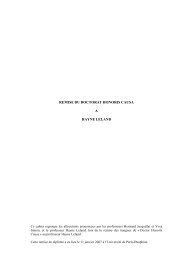
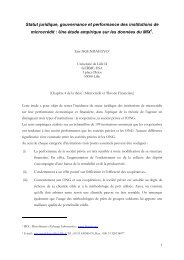
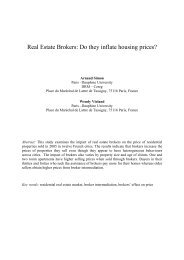
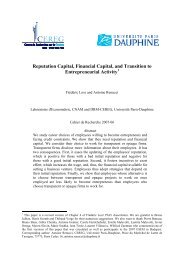
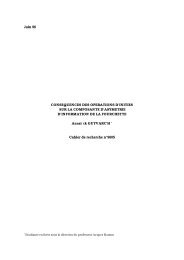
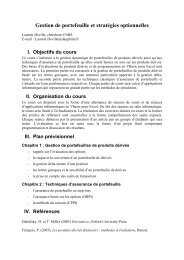
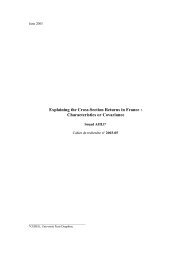
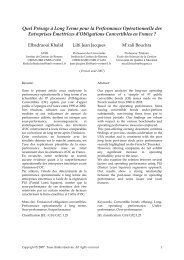
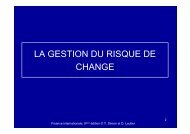
![& 6 ] ^ F ]^ - CEREG - Université Paris-Dauphine](https://img.yumpu.com/33326502/1/184x260/-6-f-cereg-universitac-paris-dauphine.jpg?quality=85)

